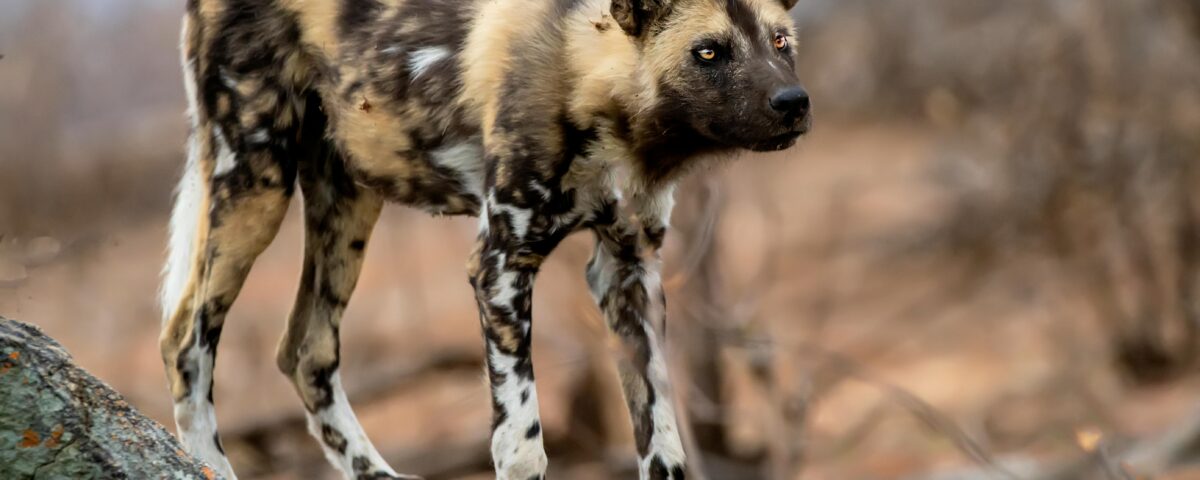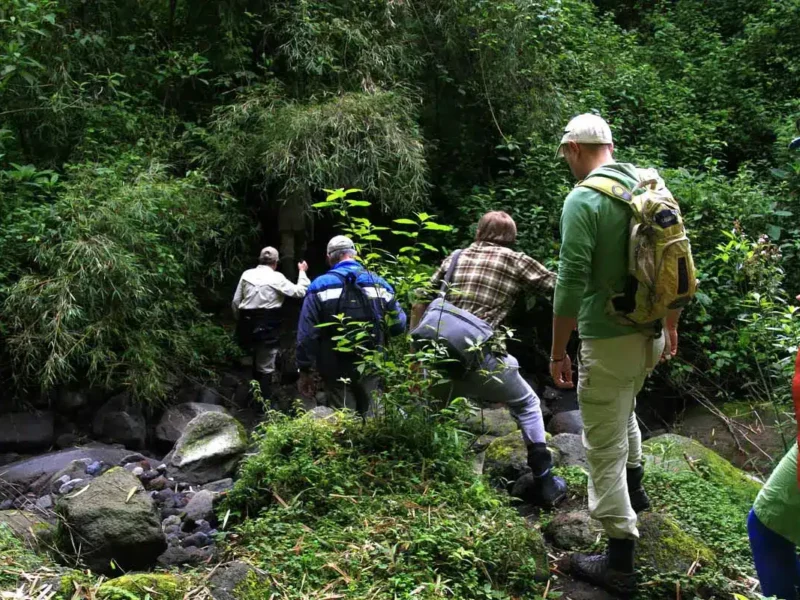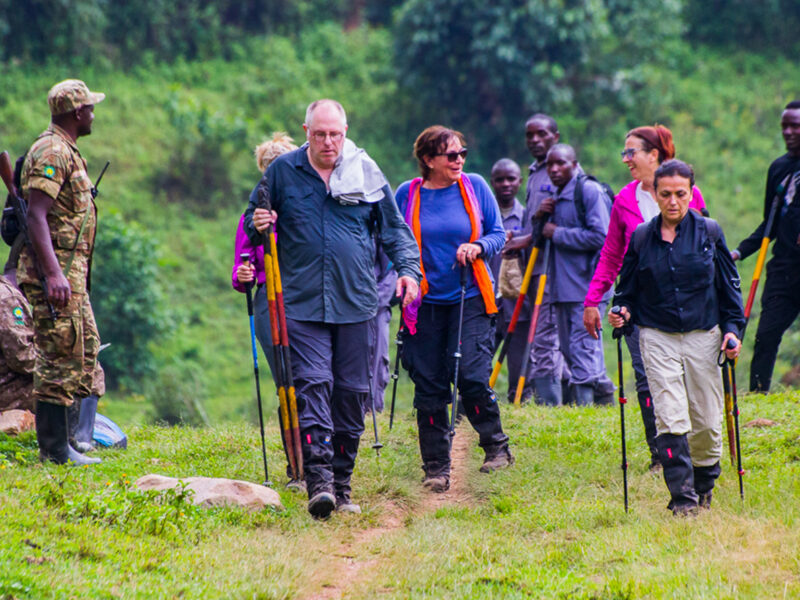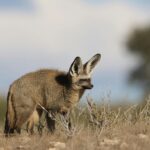
The Bat Eared Fox in Kidepo Valley National Park Uganda
September 18, 2025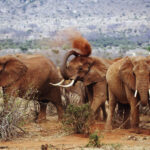
The Ultimate Kenya Safari: Combining Big Five and Birding Tours
September 22, 2025The African Wild Dog: A Fascinating Predator of Africa’s Wilderness
The African Wild Dog a fascinating predator of Africa’s Wildness, called the painted wolf or painted hunting dog, is one of the most captivating predators you can encounter during an African safari.
Unlike lions, leopards, or cheetahs, which often dominate conversations about wildlife, the African Wild Dog remains lesser known to many safari travellers.
However, this endangered species plays an important role in maintaining ecological balance across Africa’s vast savannahs, woodlands, and semi-arid landscapes.
For anyone planning a safari in Uganda, Kenya, Tanzania, Botswana, or South Africa, witnessing a pack of these extraordinary animals in action is a moment of pure wilderness magic.
Safari enthusiasts who often ask questions such as “When to go for a Uganda Gorilla Safari?” or “Where to stay on a Kenya Birding Safari?”
Soon realize that exploring regions where the African wild dogs a fascinating predator of Africa’s Wildness roam adds another dimension to their journey.
Whether combining Uganda Gorilla Trekking with game drives or staying at safari lodges near wild dog territories, the African Wild Dog experience is an adventure unlike any other.
Ngeye Tours and Travel brings forward expert insights into these remarkable animals while also guiding travellers to connect this encounter with broader safari activities like gorilla trekking, birding, and cultural experiences.
Key Characteristics of the African Wild Dog
The African Wild Dog stands out immediately because of its striking coat, which features unique blotches of black, yellow, white, and brown.
No two individuals have the same pattern, making each dog distinct, just like a human fingerprint.
This natural camouflage also helps them blend into their savannah environment, creating an unmatched sense of beauty in the wilderness.
Weighing between 18 and 36 kilograms, these medium-sized carnivores are easily recognized by their long legs and large rounded ears.
Their ears serve two purposes: improving hearing for communication and cooling the body during high daytime temperatures.
Safari travellers who often wonder “What to pack for a Kenya Safari?” or “When is the best time to visit for Uganda Gorilla Safaris?”
Should know that the dry season provides the best conditions for seeing African Wild Dogs, since they are more active in the open landscapes during this time.
By combining Uganda Gorilla Trekking with wildlife safaris in places like Queen Elizabeth National Parkor Serengeti National Park, visitors increase their chances of observing predators like the African Wild Dog while also experiencing iconic primates such as mountain gorillas and chimpanzees.
Social Structure and Behaviour of African Wild Dogs
The African Wild Dog a Fascinating Predator of the Wilderness is not only remarkable for its appearance but also for its strong pack dynamics.
Packs usually range from six to twenty individuals, but in areas of abundant prey, larger packs may exist.
Each pack is led by a dominant male and female, known as the alpha pair, who are the primary breeders.
This cooperative lifestyle ensures that the survival of pups is shared among all members.
Unlike solitary predators, African Wild Dogs thrive on cooperation and unity. During a safari, watching a pack interact provides unforgettable insight into their world.
They chirp, twitter, and even use body language for communication rather than relying on loud roars or growls. Many travellers who ask, “Is Uganda Gorilla Trekking worth the cost?”
often realize that including time to see wild dogs on their itinerary adds unmatched depth to their trip.
Observing how pups are fed first, how the injured are cared for, and how successful hunts are shared equally across the group reveals a level of social empathy rarely seen among predators.
When combined with cultural experiences such as visiting the Batwa communities near Bwindi Impenetrable Forest after a gorilla safari, travellers gain a deeper understanding of life, survival, and cooperation in Africa.
Habitat and Range of the African Wild Dog
African Wild Dogs a Fascinating predator of African Wildness thrives in diverse habitats, from open savannahs to lightly wooded areas and semi-arid plains. Historically, their range stretched across much of sub-Saharan Africa, but today their populations are fragmented due to human activity.
Key strongholds include Botswana’s Okavango Delta, Tanzania’s Selous Game Reserve, Zimbabwe’s Hwange National Park, and South Africa’s Kruger National Park.
In East Africa, areas like Serengeti National Park and Ruaha National Park provide some of the best chances to observe them in the wild.
Safari travellers who wonder “Where can I combine Uganda Gorilla Safaris with wildlife viewing?”
Often discover that itineraries combining gorilla trekking in Bwindi Impenetrable National Park with game drives in Tanzania or Kenya offer the best mix of primate and predator encounters.
For birding enthusiasts asking, “Where to stay on a Kenya Birding Safari?” the same regions where wild dogs roam often overlap with world-class birding hotspots, offering another reason to include these parks in travel plans.
By choosing Uganda Gorilla Safari Lodges near Bwindi, visitors not only enjoy comfort and cultural immersion but also have the option to extend journeys into landscapes where wild dogs and other carnivores rule the savannah.
Hunting Strategy and Diet of the African Wild Dog
The hunting strategy of the African Wild Dog is among the most sophisticated in the animal kingdom.
Unlike lions, which rely on stealth and strength, wild dogs use endurance and teamwork.
Hunts often take place in the early morning or late afternoon when the heat is manageable.
Packs target medium-sized antelopes such as impalas and gazelles, but they also pursue wildebeest calves, hares, and even birds.
What makes them extraordinary is their hunting success rate, which can reach 80 percent, far surpassing the success of lions or leopards.
Safari visitors who ask, “When to go for a Uganda Gorilla Safari?” may find that combining gorilla trekking with safaris in destinations like Serengeti or Okavango provides an extraordinary mix of predator action and primate experiences.
Witnessing a pack chase that stretches across open plains, observing the coordination between members, and seeing how the spoils are shared after the hunt adds incredible depth to a safari.
Much like Uganda Gorilla Trekking provides unforgettable memories of mountain gorillas, the African Wild Dog offers another dimension of wildlife drama that remains etched in memory long after the journey ends.
Conservation Challenges Facing the African Wild Dog
Despite their resilience and adaptability, African Wild Dogs face serious threats that continue to push them toward extinction.
Fewer than six thousand remain in the wild, with numbers declining due to habitat loss, human-wildlife conflict, road accidents, and exposure to diseases such as rabies and canine distemper.
These diseases are often transmitted from domestic dogs living near protected areas. Safari travellers who want to support conservation often ask, “How can Uganda Gorilla Safaris contribute to protecting wildlife?”
The answer lies in choosing ethical tour companies like Ngeye Tours and Travel, which prioritize conservation, community engagement, and responsible tourism.
When travellers stay at Uganda Gorilla Safari Lodges near Bwindi or Mgahinga, they directly contribute to local economies, which reduces pressure on forests and wildlife.
Similarly, choosing parks and lodges that support wild dog conservation ensures that their future in Africa remains possible.
For cultural enthusiasts, visiting communities around safari lodges adds context to conservation stories, showing how coexistence between people and wildlife benefits everyone.
Ongoing Conservation Efforts to Protect African Wild Dogs
Efforts to save the African Wild Dog a Fascinating Predator of the Wilderness are extensive and multi-faceted.
In regions such as the Okavango Delta in Botswana or Selous in Tanzania, conservation programs work to reduce conflict between wild dogs and humans by creating corridors for safe movement.
Vaccination campaigns for domestic dogs near protected areas help reduce disease transmission.
Wildlife monitoring programs use satellite tracking to better understand the movements of packs and their challenges.
Travelers often ask, “Where to stay on a Kenya Birding Safari?” or “When to go for a Uganda Gorilla Safari?”
The answer often involves selecting lodges and safari camps that actively support conservation projects.
By combining Uganda Gorilla Trekking with a safari in wild dog ranges, tourists play a role in raising awareness about the importance of preserving these predators.
After a day of trekking gorillas in Bwindi Impenetrable National Park, travellers can also enjoy cultural tours, exploring Batwa heritage or visiting local craft markets.
Enriching their safari experience while contributing to community-based conservation.
In this way, tourism becomes not only an avenue of discovery but also a tool for securing the survival of one of Africa’s most fascinating species.
The African Wild Dog Safari Experience
The African Wild Dog a Fascinating predator of African Wildness remains one of the most remarkable yet underappreciated predators in Africa.
Its beauty, intelligence, and cooperative spirit set it apart from other carnivores.
For safari travellers planning Uganda Gorilla Safaris, birding adventures in Kenya, or game drives in Tanzania, adding the African Wild Dog to the itinerary brings unmatched rewards.
Questions such as “What to pack for a Kenya Safari?” are often part of planning, but the real treasure lies in connecting with Africa’s unique wildlife.
Ngeye Tours and Travel ensures travellers experience this richness through carefully designed itineraries that combine gorilla trekking, cultural experiences, birding tours, and predator sightings.
Witnessing gorillas in Bwindi, exploring Uganda Gorilla Safari Lodges, and observing African Wild Dogs in their natural habitats creates a safari that embodies experience, expertise, authority, and trust.
The African Wild Dog is not just another predator; it is a symbol of Africa’s resilience, cooperation, and wild spirit.


